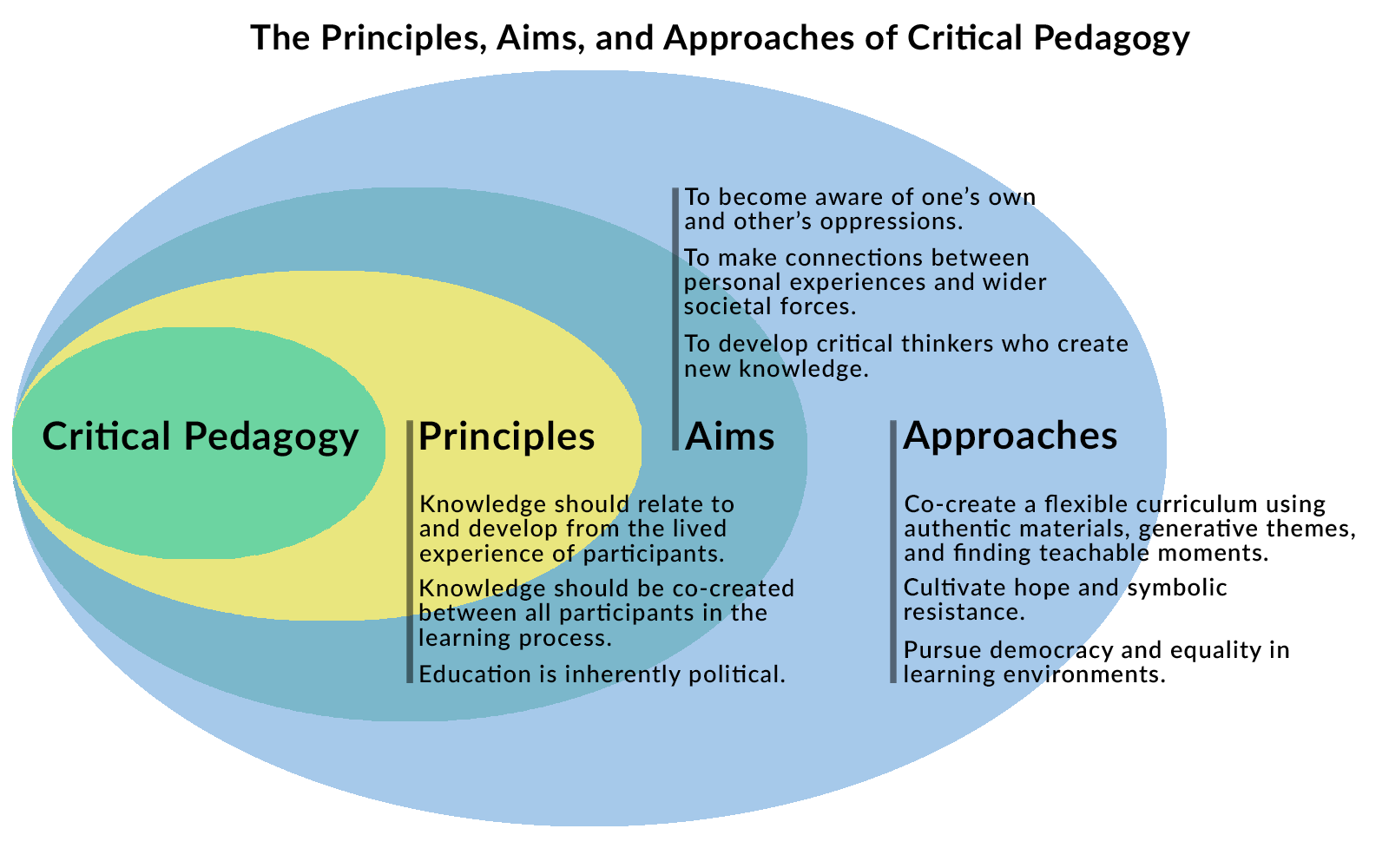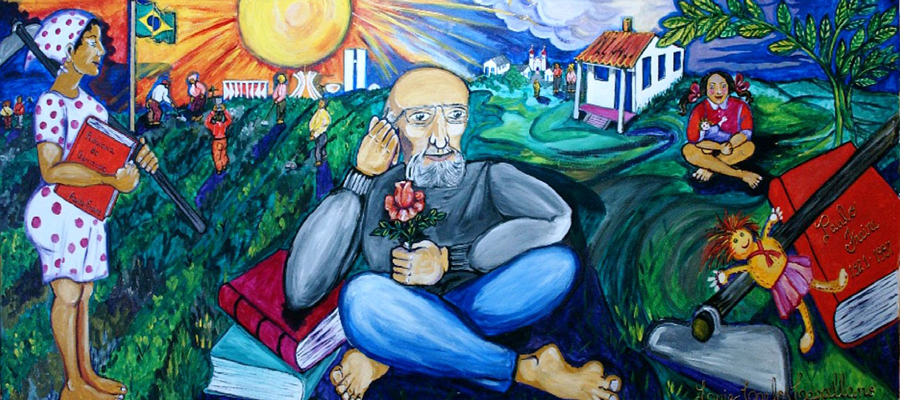Through the landmark text, Pedagogy of the Oppressed, Paulo Freire became widely regarded as the founder of critical pedagogy. Critical pedagogy embraces the belief that educators should encourage learners to examine power structures and patterns of inequality through an awakening of critical consciousness in pursuit of emancipation from oppression. A central tenet of Freire’s critical pedagogy is "conscientizacao" or critical awareness that precedes action. Critical awareness begins when learners become aware of sociopolitical inequities and then take action to mitigate those contradictions.
Freire was critical of the “banking” model of education, which views learners as empty, inferior, passive recipients of a teacher’s knowledge. Freire argued this approach discourages critical thinking and dehumanizes both the learner and the teacher. Alternatively, Freire advocated for a “problem-posing education," fueled by dialogue where:
- Learners are agentic – they have the power to control their own goals, actions, and destiny.
- Learning takes place through problem-solving.
- Learning should be both theoretical and practical.
- Teachers should not be the authoritative distributors of knowledge.
- New possibilities emerge when students and teachers are co-learners.
- Learning is an endless process of becoming.

Freire Institute. (n.d.). Who was Paulo Freire?
Freire, P. (1970). Pedagogy of the Oppressed. London: Penguin Random House.
Image Credit: Paulo Freire image
Infographic source: Smith A, Seal M. The Contested Terrain of Critical Pedagogy and Teaching Informal Education in Higher Education. Education Sciences. 2021; 11(9):476. https://doi.org/10.3390/educsci11090476
Infographic text: Critical Pedagogy text


